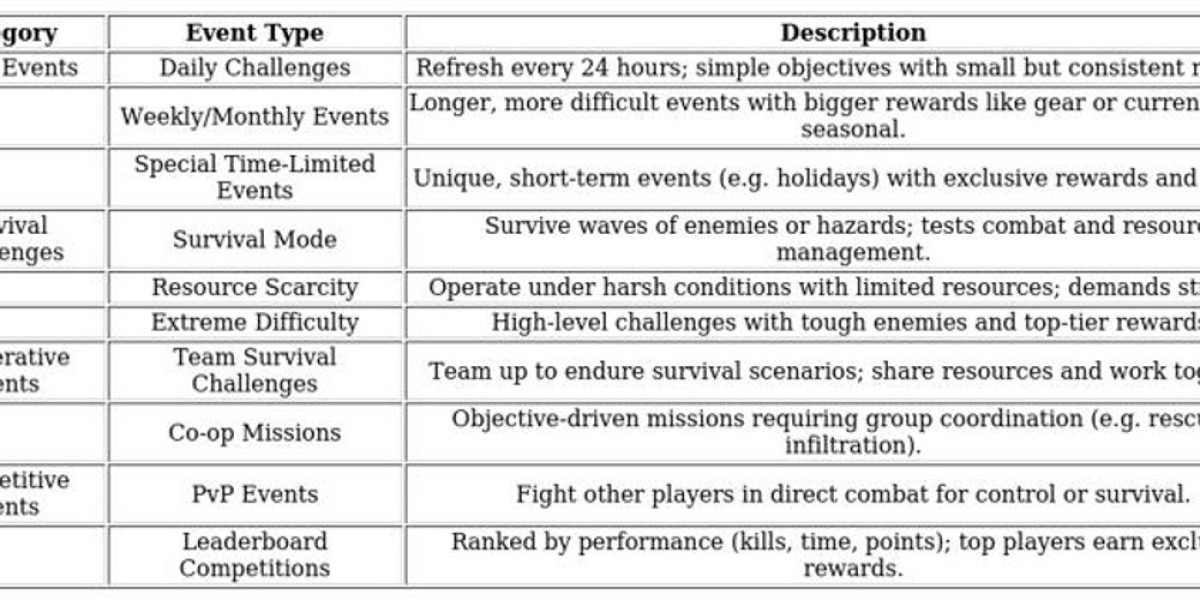Modern work culture continues to shift. Teams now work across locations, time zones, and tasks. While tools connect us, people still need human bonds to work well together. That’s why team building holds lasting value.
Malaysian companies face the same changes as the rest of the world. They juggle fast growth, digital changes, and rising stress. Without strong teams, these pressures create breakdowns. Events that bring workers together can fix gaps and spark trust.
A good team building training session supports more than smiles. It shapes how people solve problems, handle pressure, and share wins. When done right, it changes how a team sees itself.
How Events Improve Team Strength?
Not every group functions well from day one. Team events provide space for workers to learn about each other’s strengths. Through shared activities, they build trust without forcing it.
These sessions often involve:
- Practical problem-solving tasks
- Physical or creative challenges
- Group reflections to link lessons back to work
Team events don’t fix every issue, but they start honest conversations. They also show what roles people naturally take — like thinkers, helpers, or leaders. This helps teams work smarter later.
The Growing Role of Leadership Training
Managers carry the weight of guiding teams through change. Still, many feel unsure how to coach or lead. Leadership training gives them the tools to grow with their teams, not just manage them.
Training programmes help leaders:
- Speak clearly and act with purpose
- Understand team needs without guessing
- Respond rather than react during conflict
Strong leaders build strong teams. When companies invest in leadership, they also protect staff morale, project success, and company culture.
Leadership growth works best when it mixes theory with lived experience. This helps managers apply lessons right away.
Popular Formats for Team Training in Malaysia
Companies in Malaysia now choose from a wide range of training styles. Some prefer indoor workshops with guided discussions. Others go outdoors for tasks that require more movement and strategy.
Common formats include:
- Office-based simulations
- Outdoor obstacle challenges
- Puzzle and time-bound missions
- Problem-solving games
Some firms also combine leadership and team building training into one event. This helps teams grow together while learning how to support leadership efforts.
Outdoor challenges work best when safety and comfort are prioritised. Indoor workshops serve teams who prefer structure and step-by-step learning.
When to Host Team Building Sessions?
Picking the right time for a team event affects how well it works. Sessions often create the best results during:
- Onboarding for new team members
- Project handovers or department changes
- After months of high stress or missed targets
Waiting too long to solve team issues often creates deeper conflict. Instead, early action through shared learning builds habits that last longer.
If your workplace has faced recent growth or change, a one-day session may reset the group mindset. It gives people a voice and makes space to share and rebuild.
Benefits That Go Beyond Fun
Team events do not just offer laughter. They also bring quiet wins that shape long-term behaviour. A few hours of training may stop weeks of poor communication or project delays.
The real benefits often include:
- Reduced workplace tension
- Faster decision-making
- More respect between roles
When teams understand how each person thinks, they stop repeating errors. They also step in faster when help is needed. This mutual support often shows up in better project results, fewer mistakes, and less turnover.
Training helps people replace guessing with real understanding.
Signs That a Team Needs Support
Teams often show warning signs before problems get worse. Spotting these signs early helps HR and team leads plan meaningful sessions before stress spreads.
Key signs include:
- Regular miscommunication or missed steps
- Blame between roles or departments
- Quiet meetings with little input
In such moments, both leadership training and team support can shift the culture. These trainings don’t aim to “fix people” but instead build better habits.
A healthy team may also benefit from such sessions to stay sharp or explore new ways to work together.
Why Local Context Matters in Malaysia?
Malaysia’s unique mix of cultures, languages, and work styles makes team building both rich and complex. Trainers who work in this setting need to understand workplace dynamics across backgrounds.
Sessions that respect these differences perform better because they:
- Avoid cultural misunderstandings
- Use activities that match group comfort levels
- Foster shared respect between mixed teams
One team might value open debate. Another may prefer quiet reflection. Skilled trainers adapt to both and help each team find its own rhythm.
This cultural awareness shapes whether the event feels forced or flows naturally.
How Leadership and Team Building Fit Together?
Though different in focus, team building training and leadership training often connect. Strong leaders don’t work alone. They rely on teams that understand them and offer honest feedback.
At the same time, teams thrive when they trust those guiding them. That trust builds through shared goals, clear feedback, and moments of learning together.
These two types of training build on each other:
- Teams gain clarity when leaders model steady behaviour
- Leaders adjust faster when teams express their needs clearly
- Workflows improve when both move with shared direction
This link strengthens workplace culture, leading to higher success and less burnout.
Questions to Ask Before Planning a Session
Before choosing a trainer or designing an event, ask key questions about your team’s goals and situation.
Start with these:
- What issue are we trying to solve or prevent?
- What format fits our team size and comfort level?
- How will we measure success after the session?
These answers help shape the right activity mix and guide the facilitator’s focus. A clear plan avoids generic sessions that waste time and energy.
Even a simple one-day training can reshape how your team solves daily problems if it matches your team’s needs.
Keeping the Lessons Alive After Training
Many teams enjoy the training day but forget the lessons a week later. To avoid this, create simple ways to bring those lessons into daily work.
Try these follow-up actions:
- Add new habits into weekly team check-ins
- Give roles for follow-up actions or shared goals
- Review team goals one month after the event
Training works best when it becomes part of how people act and think. Leaders can model this by reminding the team of key lessons and applying tools in their feedback or planning.
The real change happens after the event ends.
Final Thoughts
Team strength doesn’t grow by luck. It takes time, attention, and the right tools. Whether your group just formed or has worked together for years, shared learning shapes how they think, work, and succeed.
In Malaysia, both leadership training and team events remain key tools for companies that want to grow without stress. These sessions replace confusion with clarity, and replace blame with support.
Choose events that match your team’s stage and goals. Focus on real actions over flashy games. Then build a habit of learning together—one session at a time.
FAQ’s
1. What is corporate team building?
Corporate team building brings workers together through games, challenges, and fun tasks. These activities build trust, spark teamwork, and help people connect outside the office. It turns co-workers into real teammates.
2. Why do companies plan team building events?
Companies plan these events to boost teamwork, fix weak spots, and help teams grow stronger. When people laugh, play, and solve problems together, they work better when they return to the office. It also reduces stress and brings joy to the team.
3. What happens during a team building event?
Teams may race through obstacle courses, build tall towers from paper, solve treasure hunts, or go on outdoor adventures. Some sessions happen indoors, with games that sharpen thinking, spark leadership, and build friendships.


